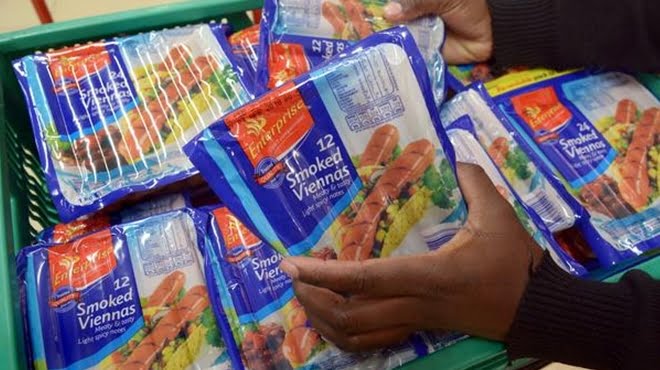Tiger Brands has published its interim financial results for the six months ended March 2018, showing what effect the devastating listeriosis outbreak has had on its bottom line.
The group recorded a 4% decline in revenue for the period to R15.7 billion (from R16.4 billion before), while operating income (before impairments and ‘abnormal items’) declined 8% to R2 billion.
The recall associated with its value-added meat processing (VAMP) amounted to R415 million, but balanced at R363 million, net of the R50 million insurance claim, and R2 million in profit from the disposal of related property.
HEPS was down 16% to 868 cents, while an interim dividend was declared at 378cps.
“With the exception of VAMP, the group’s core domestic food businesses delivered a steady performance in the six-month period ended 31 March 2018, notwithstanding intense competition and ongoing pressure on pricing as consumers continually search for value,” the group said.
However, the R363 million blow was certainly felt, with a further R183 millionhanging in the balance as tests for Listeria continue on remaining stock.
Listeriosis
In March, the group suspended operations at its factories in Polokwane, Germiston and Pretoria, which the department of health linked to the listeriosis outbreak which has claimed over 200 lives in South Africa so far, and infected over 1,000 others.
It also recalled all Enterprise products across the country.
At the time, Tiger Brands projected that the recall would cost it as much as R377 million, but its latest results show that the total associated costs with the move hit R415.2 million (before insurance) – with more to come.
“The (R415 million) costs exclude ongoing trading losses and are calculated on the assumption that the facilities are likely to have reopened by 30 September 2018. The testing of the frozen pork raw materials stock is ongoing and only expected to be concluded within the next three months.
“All frozen stock tested to date has proved negative for Listeria monocytogenes. The remaining carrying value of frozen stock exposed to potential future write-offs is R80 million. All other stock of product, raw materials, packaging and ingredients, which is expected to be utilised following a recommencement of operations amounts to R103 million at 31 March 2018,” it said.
In March, the group warned that the monthly impact of a complete cessation in production equals an ‘adverse movement’ of approximately R50 million at an earnings, before interest and tax level relative to the existing earnings base.
With operations expected to only be back online in September, that means the group stands to lose a further R250 million in the five months between its financial year-end and the recommencement of operations.
The group also noted that it was spending R50 million in an extensive ‘deep clean’ of its facilities in response to the outbreak.
Class action lawsuit
Tiger Brands is also facing further losses through two class action lawsuits which have been launched by attorneys representing those affected by the listeriosis outbreak.
The first class comprises all persons who consumed a processed meat product manufactured by the company and who became ill as a result of such food product being contaminated with listeria at any time between 1 May 2017 to the date of issue of summons in a class action to be brought.
The second class comprises the dependents of persons who consumed a processed meat product manufactured by the company and who died as a result of such food product being contaminated with listeria at any time between 1 May 2017 to the date of issue of summons in a class action to be brought.
The total amount claimed against Tiger Brands and Enterprise Foods is estimated at R425 million.
Speaking on the lawsuits in its results presentation, Tiger Brands said it is “carefully considering the best approach to ensure that the recently launched class actions are handled sensitively and responsibly having regard to all the facts”.
“The application for certification of the classes is in progress, while our legal representatives are in discussion to explore further collaboration,” it said. “Given that these discussions are in progress, we will communicate our approach as soon as a decision has been reached.”
The group said that it was engaging openly and transparently with relevant government departments, regulators and all other stakeholders, and would put a core focus on rebuilding trust with consumers in the country.
